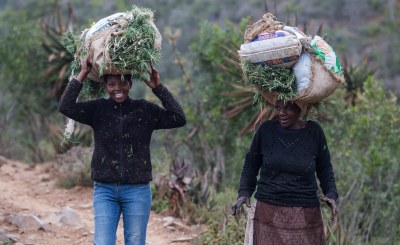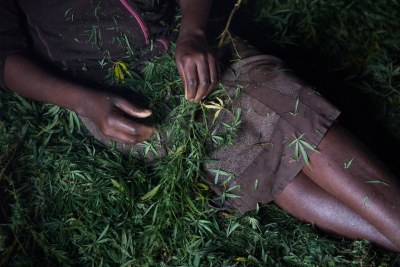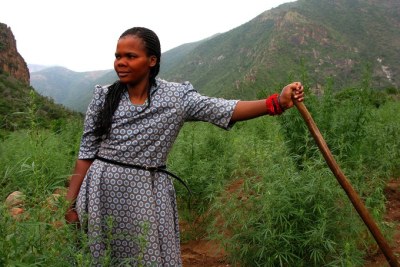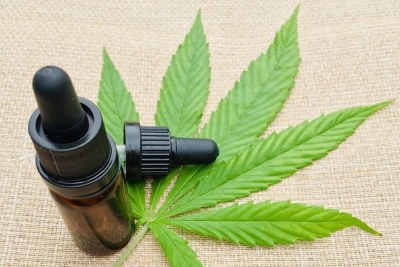-
South Africa: Progress Made in Hemp, Cannabis Sector Policy
SAnews.gov.za, 25 June 2023
Government is making strides in the development of a policy for the hemp and cannabis sector, as stakeholders have collectively agreed on regulatory reforms. Read more »
-
South Africa: Cannabis Industry Plans for South Africa Have Stalled - How to Get Them Moving Again
The Conversation Africa, 24 March 2023
South African president Cyril Ramaphosa recently reiterated plans to accelerate the commercialisation of hemp as well as cannabis plants. His speech setting out government's… Read more »
-
Africa: Cannabis Policy Changes in Africa Are Welcome. but Small Producers Are the Losers
The Conversation Africa, 30 May 2022
Cannabis is a drug crop with a long history in Africa. Alongside coca and opium poppy, it has been subjected to international control for nearly a century. The International Opium… Read more »
-
South Africa: Cannabis, Indigenous Plants Project in Ilembe a Boon for Communities
SAnews.gov.za, 17 May 2023
A groundbreaking initiative is set to grow the agricultural sector in the iLembe District Municipality, according to KwaZulu-Natal MEC for Finance, Neliswa Peggy Nkonyeni. Read more »
-
Africa: Africa's Cannabis Market to Hit U.S.$7.1 Billion By 2023
The Exchange, 15 January 2022
Africa's medicinal cannabis market will be worth $7.1 billion by 2023. Read more »
-
Africa: Weed for Export - Raising African Economies High On Medical Marijuana
The Exchange, 28 October 2022
Medical marijuana may very well be the agri-business that Africa needs to get its economies high in the global multi-billion agro-industry. Read more »
Gains Made in African Cannabis Trade, but Small Producers Suffer
The South African government has made strides in the development of a policy for the hemp and cannabis sector. The reforms are looking to unlock the potential of cannabis in African traditional medicine, pharmaceutical and complementary medicines, human and animal ingestion, and multiple industrial applications, the presidency has said.
This comes after many African states that prosecuted citizens for cannabis-related offences for years, are now promoting legal cannabis production. Over the past five years, 10 countries have passed laws to legalise production for medical and scientific purposes. These include Lesotho, Zimbabwe, South Africa, Uganda, Malawi, Zambia, Ghana, eSwatini, Rwanda and Morocco.
However, according to The Conversation, there are still policy and practical concerns requiring attention if the cannabis sector reforms are to have a positive impact on the economy and citizens' livelihoods. These include the need to ensure participation of ordinary producers in the legal cannabis sector. This is because the emerging regulation frameworks seem to favour corporate businesses over smallholder farmers.
The limited scope of legal production, the high licence fees and business set-up costs and other conditions are likely to limit participation of many smallholder producers who lack the resources to establish legal cannabis businesses.
InFocus
-
The legal global cannabis market and industry, led by nations such as Canada, are fast growing, and this is what South Africa should aspire to plug into, writes Ed Stoddard for ... Read more »
-
The Department of Agriculture, Land Reform and Rural Development (DALRRD) is on the verge of presenting a Cannabis Master Plan to the National Economic Development and Labour ... Read more »
-
Black farmers are taking on the South African Health Products Regulatory Authority (SAHPRA) over the exclusion of indigenous people in the handing out of cannabis licenses. The ... Read more »

Dr. Zorodzai Maroveke, head of Zimbabwe Industrial Hemp Trust, seen in a Beatrice farming area on July 7, 2021, says Zimbabwe is making a smart choice with cannabis, since the tobacco market is shrinking.








